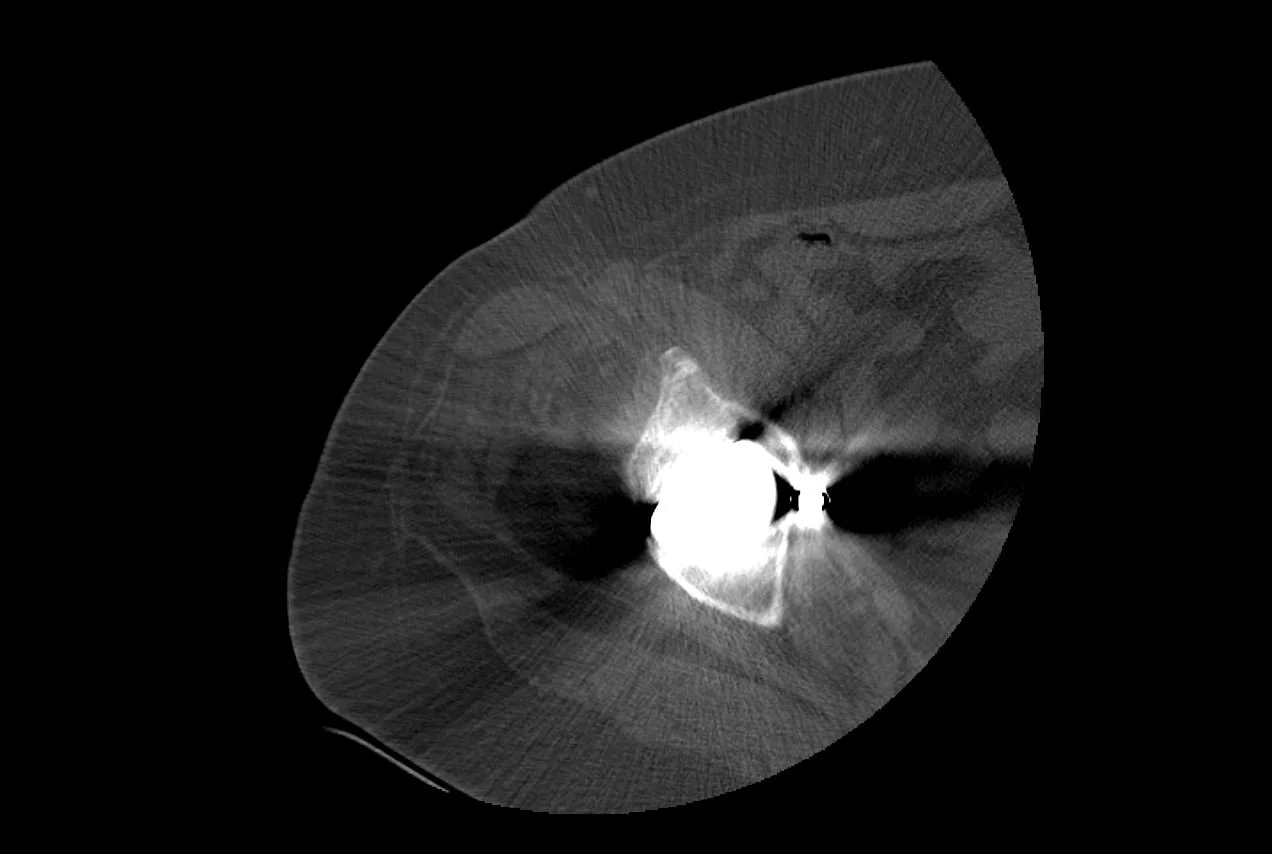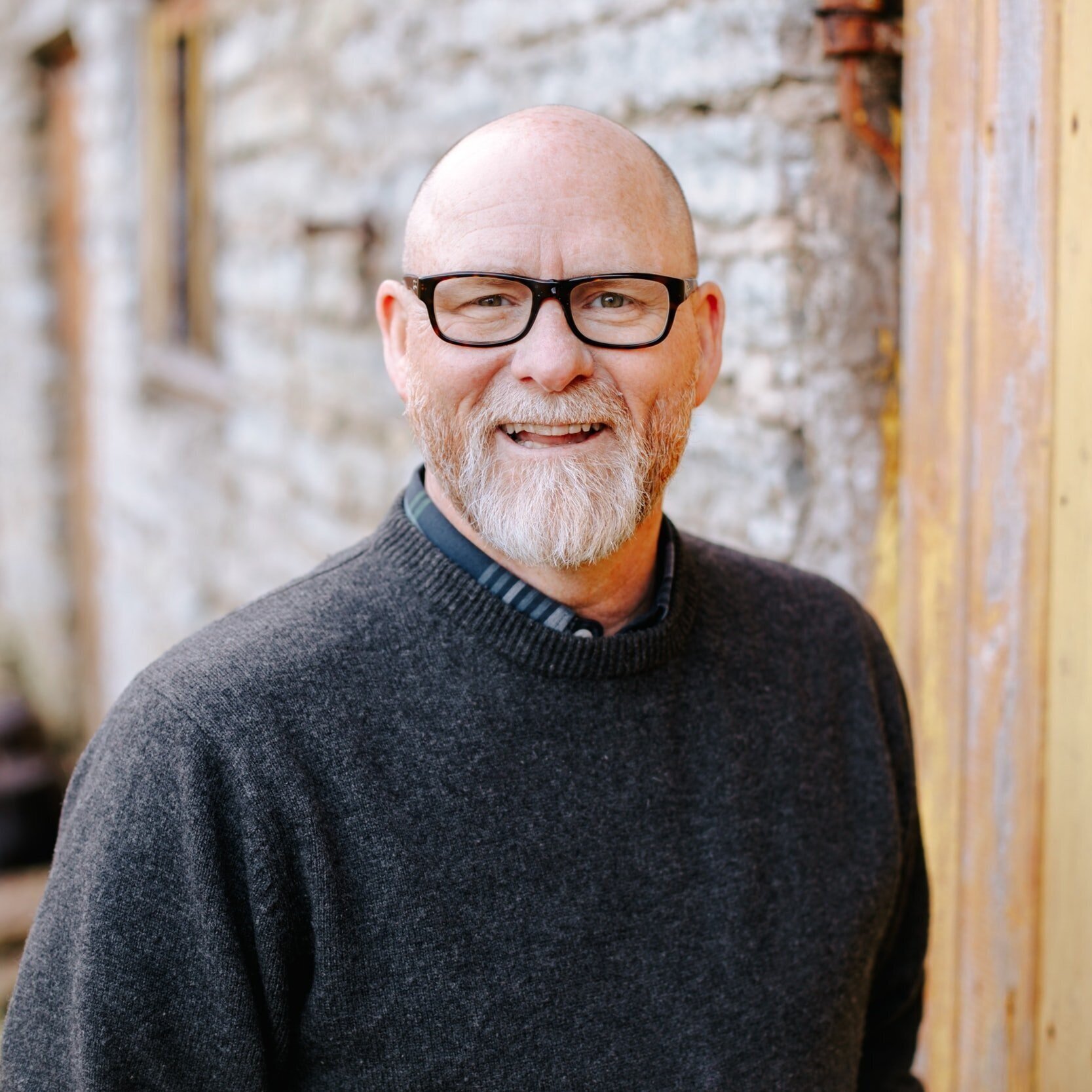
Finally walking again without pain

Revision surgery hip joint prosthesis
Martha K. can only move with severe pain. Her right hip joint "clicks" with every step she takes. Due to the pain, the 72-year-old has been unable to go for long walks or ride her bicycle for a while now. Longer trips with her husband, which they took regularly until a few years ago, are no longer possible.
CT image of the faulty implantet
Martha had an artificial hip joint implanted after an accident 25 years ago. The complaints suggested severe abrasion of the joint prosthesis. This is nothing unusual, as the lifetime of an implant is given as 20 to 25 years. After this time, most implants have to be replaced.
What looked like a routine procedure turned out to be a medical problem for Martha. During preliminary radiological examinations, doctors discovered that parts of the implant had shifted. In addition, the endoprosthesis had been inserted incorrectly. Long screws used to anchor the prosthesis in the hip bone protruded through the bone into her soft tissue structures in the pelvis. This explained the severe pain and presented doctors with a very risky procedure with an unknown outcome.
1:1 model of the incorrectly seated hip joint prosthesis before revision surgery
Together with her husband and daughter, Martha looked for a solution. In the process, they came across our service of 3d-printed patient-specific trainings models. Within a short time, we created a 3D-printed model of Martha's perforated hip bone, as well as the implant and the incorrectly seated screws, based on the CT data.
"The model was an important part for us in preparing and training this difficult procedure" confirmed the operating physician. "Due to the existing prosthesis, the X-rays were heavily over-shadowed. The 3D model from HumanX provided a tangible basis for preoperative training. With the help of the model, we were able to optimally assess the situation and discuss it preoperatively as a team. This made it clear which structures were potentially at risk when the defective prosthesis was removed. It was also possible to practice very precisely how the new prosthesis would be stably reinserted despite previous damage to the bone."
Today, nearly six months after the successfully performed surgery, Martha is smiling again. "I thought I would have to sit in a wheelchair for the rest of my life. Now I can finally walk again without pain."
Additional publications in this field:
Improvement of surgical time and functional results after do-it-yourself 3D-printed model preoperative planning in acetabular defects Paprosky IIA-IIIB
This comparative study of 21 patients with Paprosky IIB to IIIB acetabular defects demonstrates that severe acetabular defects shorten surgical time and reduce complications using 3D-printed preoperative models. This results in a better outcome and more patient satisfaction.
https://www.sciencedirect.com/science/article/abs/pii/S1877056822000895
More case reports:
Polytrauma after severe accident
Michael fell from a height of almost 5 meters in an accident at home. With severe internal injuries and a complicated fracture of the right hip joint and the pelvic bone, he was taken to the hospital with trauma surgery as a so-called polytrauma patient. Learn what doctors and family did for Michael's recovery.
Treatment of prostate cancer
About one in eight men will be diagnosed with prostate cancer during his lifetime. So it was with Paul. "I never dealt with the subject before the diagnosis. Of course I knew that this form of cancer existed, but I never thought about it," says the 64-year-old today.






